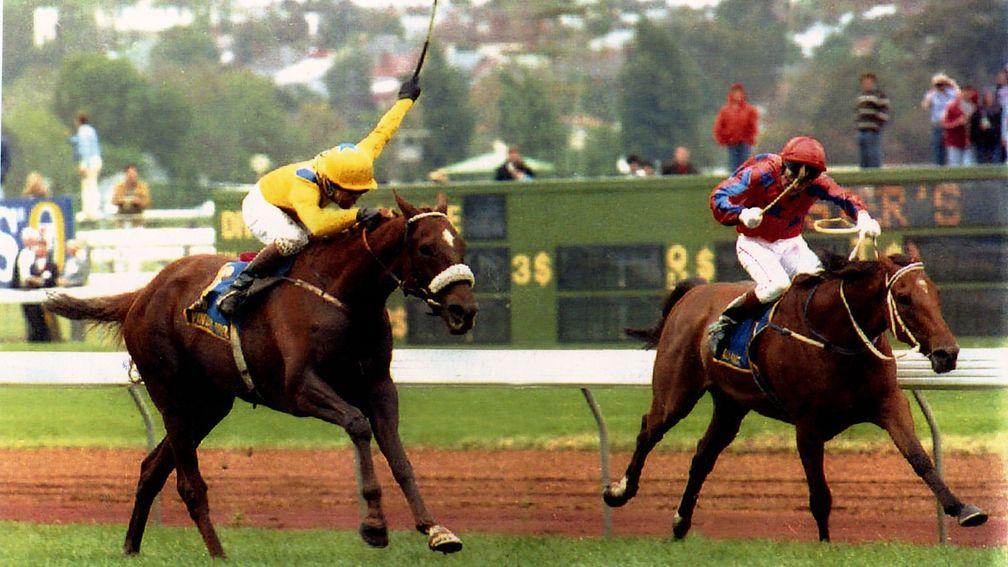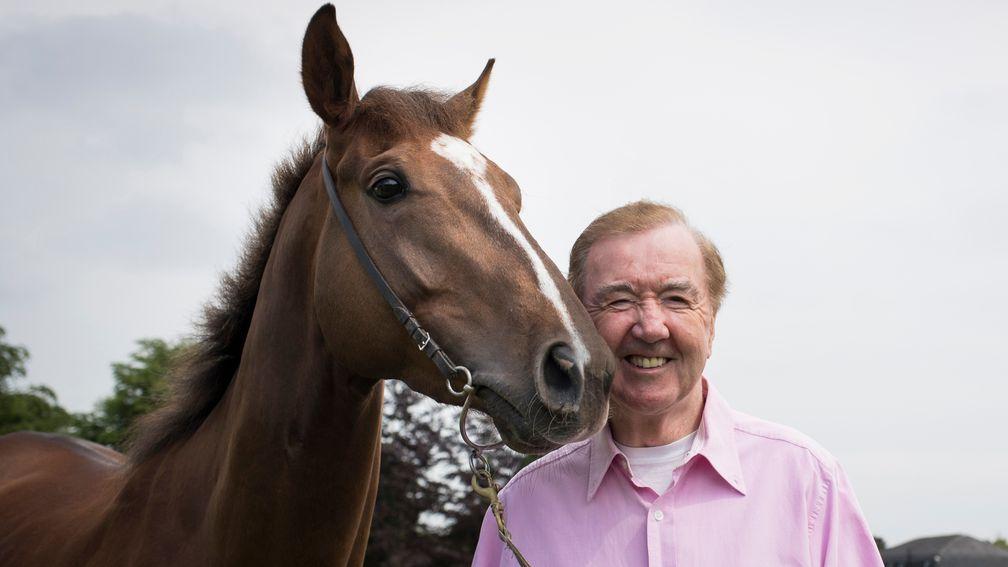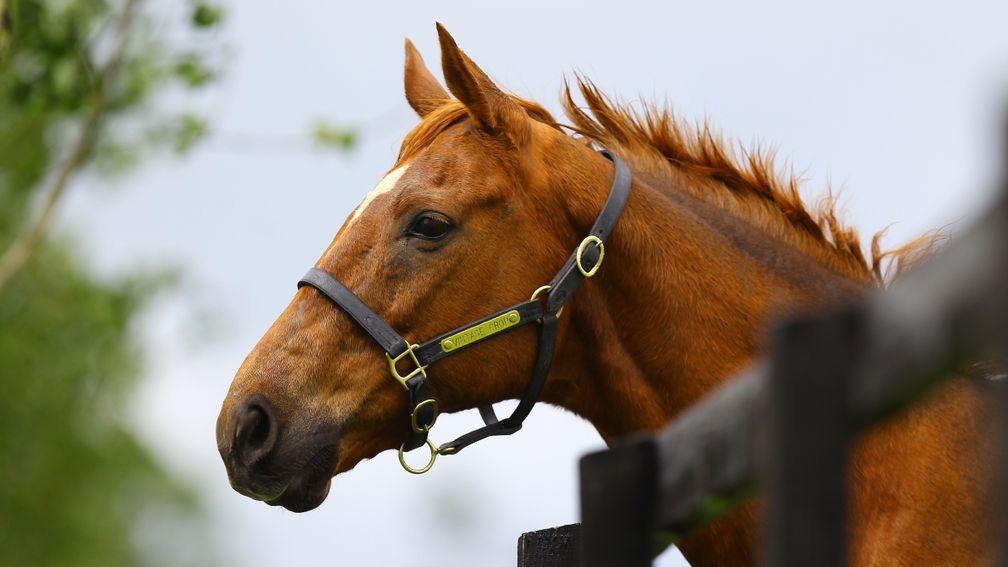Majestic Crop puts the Vintage back into Australia's most famous horserace
Julian Muscat hears Dermot Weld relive the day that changed the Cup forever

Fans tuning in to live televised coverage of the Melbourne Cup will see a very different vista to the one prevalent at Flemington racecourse in 1993.
On that day the hangover from heavy overnight rains still sat heavily over the city, parts of which were shrouded in mist. That alone was enough to deter 40,000 from the anticipated crowd of 100,000 from turning up, but truth be told, the Cup was already losing its place in Australian hearts.
The scenene on Tuesday for the 158th renewal could hardly be more different. Flemington will be bursting at the seams. Fashionistas will be out in force, and home-trained runners will only just outnumber those trained in Europe in a race that was once a domestic spat between horses from Australia and New Zealand.
Indeed, the fact that the Cup is being broadcast live in Britain alludes to the huge sea-change in its fortunes. And all because of one horse.
It is 25 years since Mick Kinane unleashed Vintage Crop to gallop away from Te Akau Nick and win by three lengths. In that moment the mould was broken by a raider from Ireland. The Melbourne Cup was on its way to becoming an international monument.
"At the time I was quoted as saying that Vintage Crop's victory would internationalise the Melbourne Cup," reflects the horse's trainer, Dermot Weld. "We can see today that that has happened."
Indeed it has. Since that seminal day a staggering 225 horses trained outside Australia have competed at the Spring Carnival, of which the Melbourne Cup is the signature race. The Cup itself has been marked 'for export' a further six times.
Vintage Crop's triumph had been many decades in gestation. Weld had worked at the great Tommy Smith's Tulloch Lodge stables in Sydney, where Kingston Town was trained, soon after he qualified as a vet in Dublin.
"I thought then that a horse could be brought from Europe to win the Melbourne Cup even though everybody said it couldn't be done," Weld says. All he needed was the right horse and that horse emerged when Vintage Crop won a 14-furlong handicap at Tralee in August 1992.
"After that Mick Kinane said to me that if ever we had a horse for the Melbourne Cup, Vintage Crop was that horse," Weld reflects.
Vintage Crop was duly entered only for complex and impractical quarantine regulations to scupper the project.
Over the next 12 months Weld worked in tandem with the agriculture ministries in Ireland and Australia to make the prospect viable. "The quarantine arrangements in Melbourne had to be changed, international flight-paths had to be changed to avoid crossing over Africa by air – a lot of people worked very hard on it," the trainer says.
That detail alone emphasised how ill-prepared Australia was for hosting international competition. Bolt by bolt, however, the requisite framework was assembled so that Vintage Crop and Drum Taps embarked on an arduous voyage that saw them land in Melbourne three weeks before the Cup. They would become the first horses from Europe to contest Australia's iconic race.
Twice a winner of the Gold Cup at Ascot, Drum Taps hailed from the stable of Lord Huntingdon who, before becoming ennobled, had trained in Australia as William Hastings-Bass.
"Everybody focused on Drum Taps, and Vintage Crop was seen very much as the underdog," recalls 'Aussie' Jim McGrath, who was in Melbourne covering the race for the BBC and The Daily Telegraph.
To local horsemen, Huntingdon's stint in Australia meant that he knew what to expect, and how to prepare Drum Taps. But Weld posed a novel conundrum. "The locals could see that Vintage Crop was doing very little exercise in quarantine," McGrath relates. "They wondered whether his trainer would have the horse fit enough; whether he really knew what was required.

For his part, Weld was nursing his horse towards the big day. "He'd travelled average and it took him two weeks to start eating properly, but I was very happy with his last piece of work five days before the race," he recalls. "We got him right literally on the day, and I was very confident he was going to take a lot of beating."
So much so that Weld prepared himself every bit as well as he had prepared his horse. He broke into verse in the winner's circle, reciting verbatim AB 'Banjo' Paterson's A Bush Christening, pausing only to tell stunned reporters he'd been inspired to target the race after reading Patterson's The Man from Snowy River as a teenager.
As Weld related in his book, Against All Odds, victory generated an immense feel-good factor in Ireland, whose economy was in the doldrums and whose sporting prowess on foreign fields was minimal at the time. But its impact in Australia was seismic. The Melbourne Cup floodgates were now open.

"It's amazing how those 25 years have flown but it was a very special day then and is still a very special achievement in my career. It was a big advantage having Mick Kinane as my stable jockey, too. It was Mick's first ride in Australia, but he rode Vintage Crop brilliantly.
"My feeling then was one of tranquility, of satisfaction over a job well done. It was a lifetime's ambition achieved and I very much treasured the moment when the Lord Mayor of Melbourne gave me the keys to the city.
"Some people said it was a fluke, so I was delighted to go back and win the Cup again with Media Puzzle [in 2002]. Vintage Crop was the first but I'm sure that a whole lot of horses from around the world are going to win it in the years to come."
A long night of celebrations
Tony O'Hehir gives an eyewitness account of Vintage Crop's historic win
Most Australians regarded Vintage Crop's bid for the Melbourne Cup as an impossible mission, and they weren't shy about voicing their views.
Put simply they just wouldn't wear the idea and I got an early indication of what the Aussies thought shortly before departing Dublin airport on the first leg of the journey to Melbourne.
Seated alongside two young ladies from Victoria, the conversation quickly turned to the purpose of my trip. They were racing fans, knew the form inside out and quite a bit about Vintage Crop, dismissing him for different reasons and telling me to enjoy my trip but not to waste money by backing him.
Later a Melbourne taxi driver, recognising an Irish accent but with little knowledge of Irish geography, inquired whether I was in town to "plunge on the Crop" or to avoid "The Troubles" before dismissing Vintage Crop's chance.
The local media were intrigued by Dermot Weld's mission and almost to a man they, too, were extremely sceptical. After all, what he was trying to do had never been done. A former hurdler couldn't win the Cup – the horse hadn't had a race for six weeks and hadn't impressed them in his work after arriving. The attitude was "great to see you all here but it's not going to happen mate".
But happen it did. On the big day Irish flags were everywhere. After the race tears were shed by many Irish folk long resident in Melbourne and others who had travelled from other parts of Australia.
Weld had dared to dream and his dream was fulfilled. He staggered the local media, and the visiting press corps, by reciting Australian poet Banjo Paterson's A Bush Christening at the post-race press conference.
He loved all the hulabaloo that followed. Mick Kinane was less enthralled by all the post-race media spotlight which spilled over to the following day. He had the good sense to take his hotel room phone off the hook as various radio stations tried unsuccessfully to get him for their morning shows. Instead they somehow managed to track down this Irish voice and peppered him with questions.
It had been a long night of celebrations – the 20-1 about Vintage Crop had been too attractive to ignore – and hopefully any tapes of those interviews have long been destroyed.
History had been made and the face of Australia's race, for so long a local spat involving only the Aussies and their noisy neighbours from New Zealand, had been changed forever. It was a very special occasion and remains a treasured memory. And the 20-1 availed of two days before the race was quite tasty too.
Members can read the latest exclusive interviews, news analysis and comment available from 6pm daily on racingpost.com
Published on inAustralia
Last updated
- 71-year-old Australian jockey who rode his first winner in 1969 enjoys a fairytale success on final mount
- 'The Melbourne Cup is the goal' - Vauban to stay in Australia after Rich Ricci sells star for A$2 million
- The Melbourne Cup Carnival ends with remarkable numbers that might make some in Britain and Ireland gulp
- Via Sistina dazzles again as former British star continues her sensational spring with Flemington romp
- Flemington: Yulong gets ready for Via Sistina's Saturday star turn with a Classic triumph
- 71-year-old Australian jockey who rode his first winner in 1969 enjoys a fairytale success on final mount
- 'The Melbourne Cup is the goal' - Vauban to stay in Australia after Rich Ricci sells star for A$2 million
- The Melbourne Cup Carnival ends with remarkable numbers that might make some in Britain and Ireland gulp
- Via Sistina dazzles again as former British star continues her sensational spring with Flemington romp
- Flemington: Yulong gets ready for Via Sistina's Saturday star turn with a Classic triumph